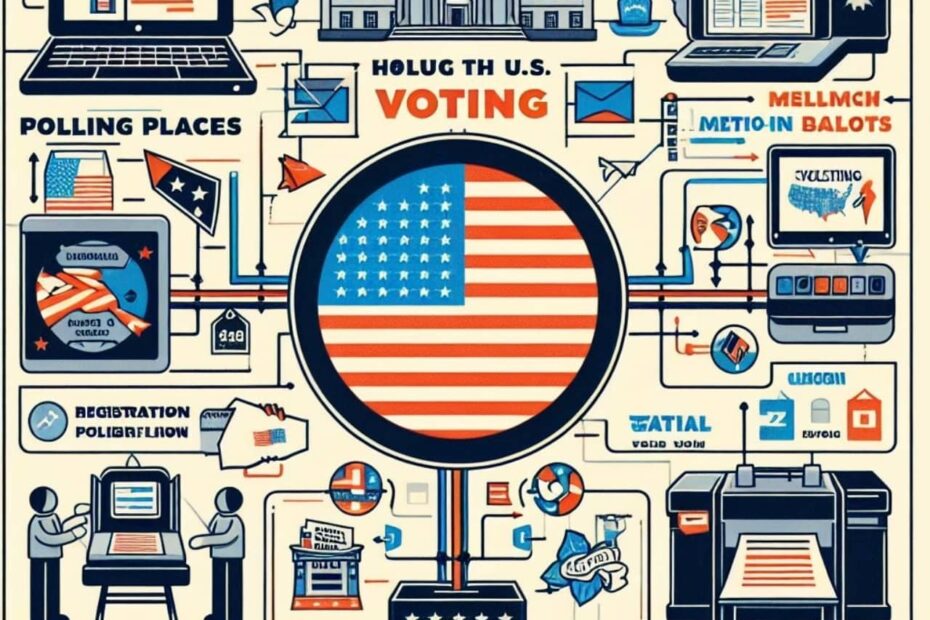Several U.S. states have shown interest in collaborating with the Cardano Foundation to develop a Blockchain-based voting system. The goal is to increase transparency and trust in electoral processes.
The US States Seek Transparency Through Cardano. Frederik Gregaard, CEO of the Cardano Foundation, revealed that several U.S. states have shown interest in collaborating with the organization to develop a Blockchain-based voting system. This news highlights the growing recognition of the technology underlying cryptocurrencies as a tool with the potential to improve transparency and trust in electoral processes.
States seek “lightweight” Blockchain-based solutions
According to Gregaard, states that have approached the Cardano Foundation seek to create a “lightweight” Blockchain-based voting system. The main goal is to increase transparency and accountability in elections by leveraging the inherent features of Blockchain technology, such as its immutability and its ability to record transactions in a secure and verifiable manner.
While Gregaard did not specify which states have shown interest, he stressed that the Cardano Foundation is assessing the feasibility of developing a solution in the timeframe required by stakeholders. This process involves considering the technical and logistical challenges associated with implementing a blockchain-based voting system statewide.
Cardano and the democratization of decision-making processes
The Cardano Foundation, like other organizations in the Blockchain ecosystem, has demonstrated a commitment to the democratization of decision-making processes. A prominent example is Catalyst, a platform that allows holders of ADA, Cardano’s native cryptocurrency, to discuss proposals and vote on projects on the network. This initiative has been instrumental in promoting decentralization in critical aspects such as decision-making and funding rounds.
However, developing a Blockchain-based voting system for state elections requires additional and specific considerations. The Cardano Foundation must address scalability, security, and ease of use to ensure the proposed solution is viable and effective.
Potential competition in the Blockchain voting space
As Blockchain-based voting gains traction in the United States, the Cardano Foundation faces competition. Other networks, such as Solana, may explore similar opportunities to collaborate with states interested in developing voting platforms. The competition would create a race to offer the most robust and reliable solution.
Despite the challenges, the Cardano network has demonstrated an impressive level of activity and progress in recent months. Data from IntoTheBlock reveals that, between March 11 and March 17, Cardano recorded 978,800 commits on GitHub, 140% more than Ethereum’s 407,200 commits. The metric, which refers to developer activity on those networks, suggests that developers increasingly recognize Cardano as an attractive network with similar opportunities to Ethereum.
In addition, the Cardano Foundation has expanded its crime-fighting reach, recently collaborating with the Dubai police on a pilot project. During last month’s World Police Summit, the Dubai police presented a Cardano-based project using Blockchain technology to share confidential data securely with other police authorities, such as Interpol. This initiative demonstrates the potential of the Blockchain to facilitate collaboration between institutions globally.
In summary, the interest of several U.S. states in working with the Cardano Foundation to develop a blockchain-based voting system is a testament to the growing recognition of this technology as a tool to improve transparency and trust in electoral processes. While challenges remain ahead, Cardano’s steady progress and commitment to innovation suggest that the organization is well-positioned to meet this exciting challenge.

